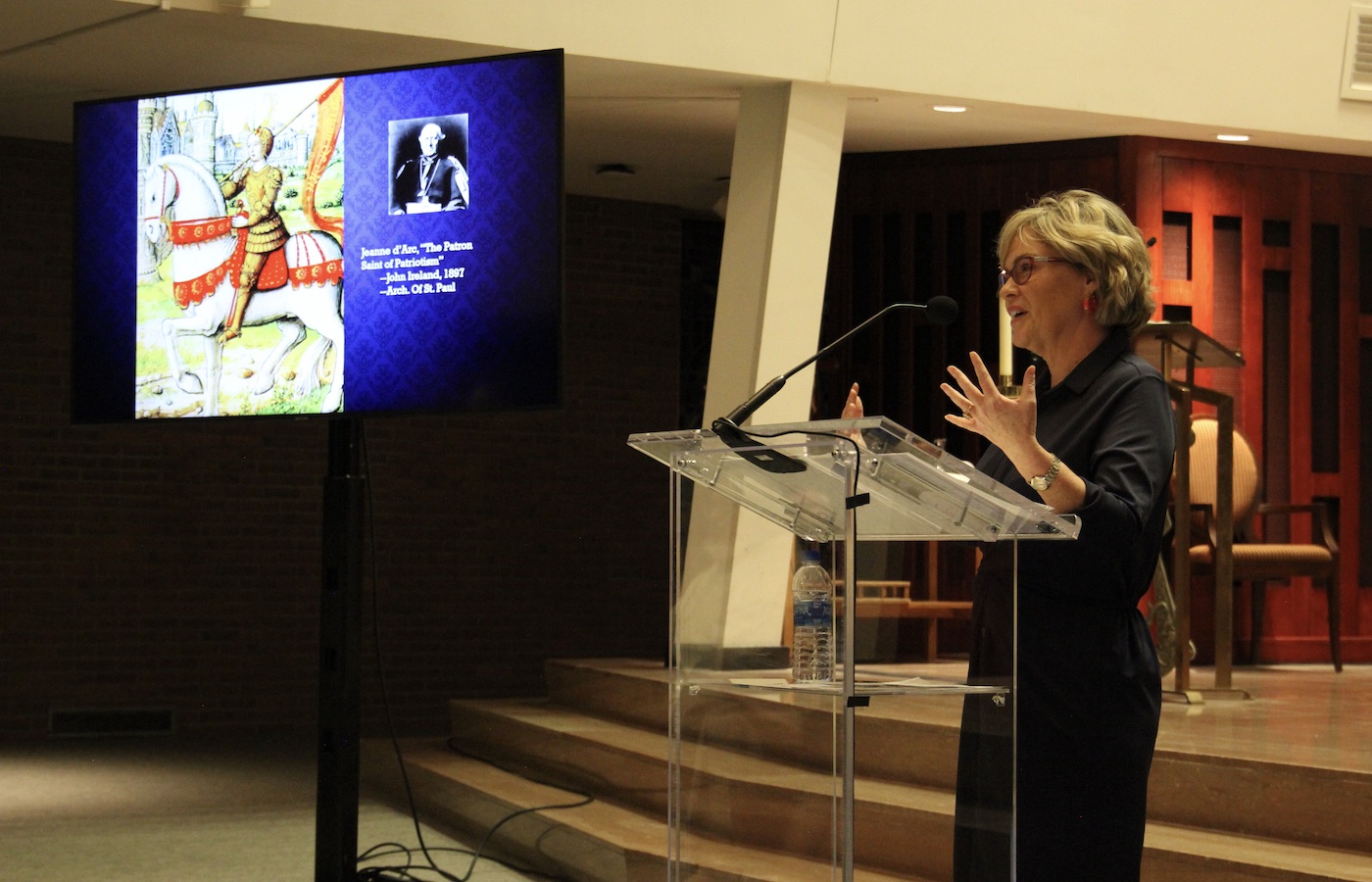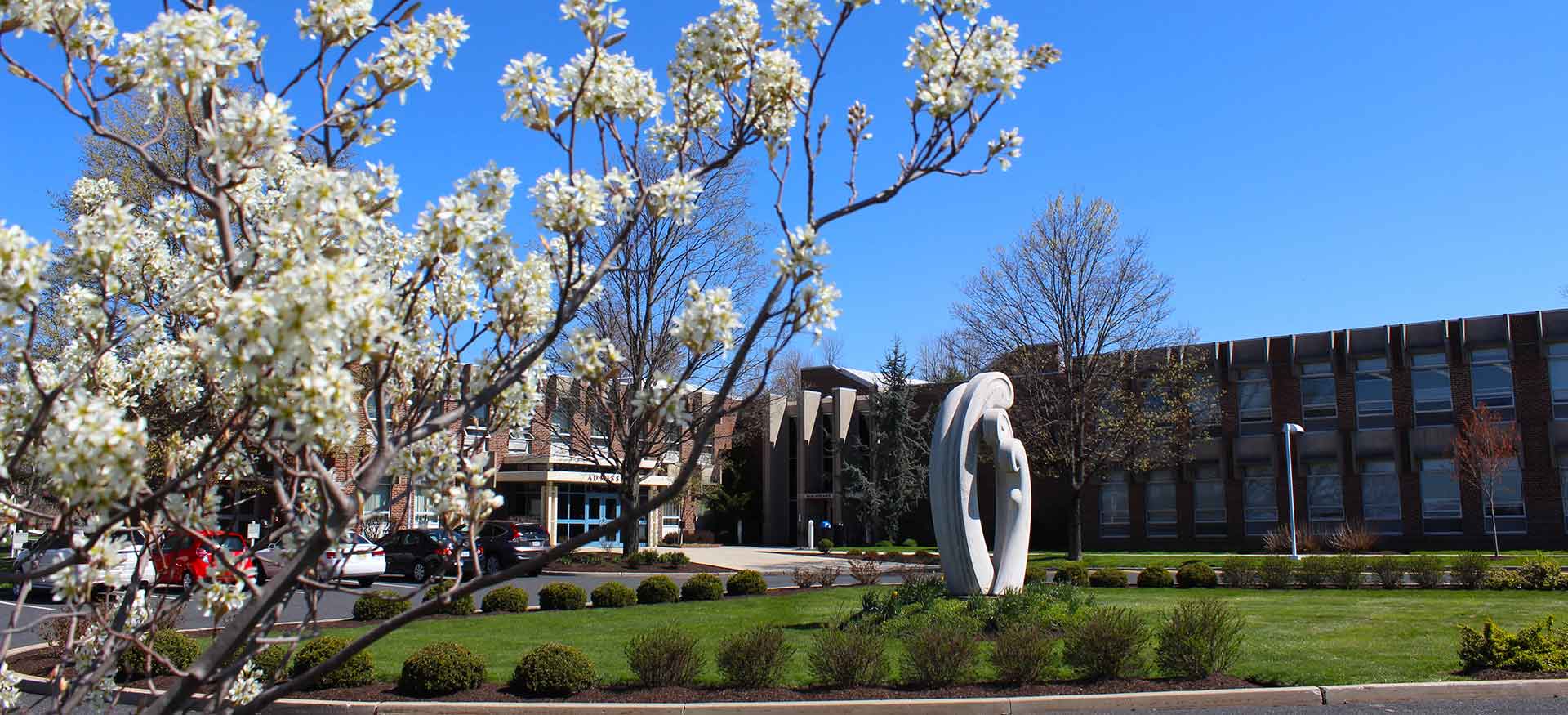Kraft Lecture Explores the Canonization of Saints in America

You can never have enough models of holiness. That was just one of the takeaways from Kathleen Sprows Cummings during the Joan & Deacon R. Wayne Kraft Memorial Lecture in Connelly Chapel.
Cummings, a professor at the University of Notre Dame and director of its Cushwa Center for the Study of American Catholicism, explored the history and dynamics of Americans becoming saints in the Catholic church.
“The culture in which we live shapes the saints we embrace, and changes in that culture affect the saints we promote,” she told the crowd.
As the United States started looking for a saint to canonize and embrace, the thought was that it had to be someone who walked on American soil. Another issue came into play, Cummings said, because Protestants did not feel as though Catholics could be good Americans. Joan of Arc was a major candidate at the time, despite the fact that she was French.
“She could inspire people, not just in France, but all over the world to think about what it meant to be a saint and a patriot,” Cummings said. “She fused nationalism and sanctity.”
St. Rose of Lima was the next hot topic as she was declared the patron saint of all the Americas. But she lived in South America, which, Cummings said, was not what the people in the United States were looking for.
As Cummings explained, canonization is rooted in marketing as much as it is in holiness, so the church needed to find someone who modeled holiness with a close enough proximity to sell.
Mother Frances Cabrini leapfrogged many other candidates to become the first U.S. citizen to be canonized in 1946. Known for being a savvy businesswoman, she later became the patron saint of immigrants.
Mother Katharine Drexel, who was born in Philadelphia in 1858, became one of the first U.S. born saints. Deemed a visionary for the time, she founded Sisters of the Blessed Sacrament out of concern for the way Native and African Americans were treated.
In the modern search for saints, Father Augustus Tolton—the first U.S. priest of African ancestry—has been nominated. He was deemed venerable by Pope Francis despite being barred from every seminary in the country during his life.
Begun in 1995, the Kraft Lecture series honors the memories of Joan A. & Deacon R. Wayne Kraft. As an adjunct professor in philosophy at DeSales University, Wayne Kraft lectured on and wrote four books about the philosophy of Teilhard de Chardin. He was awarded an honorary doctorate of humanities degree in 1984 and received the DeSales Medal in 1988 for his work as a Catholic layman.
Joan Kraft was a leader of song; one of the first women lectors; a Eucharistic minister; a pioneer in church and civic affairs in the Bethlehem area; and served on the pastoral team of her parish. She became the first Catholic woman to serve as a volunteer associate chaplain at St. Luke’s Hospital, having obtained a degree in pastoral care. The University awarded her an honorary doctorate degree and also the DeSales Medal.





